This is a free example of the narrated version of Shriek of the Week, which is what paying supporters get every time. If you like it and it’s affordable for you, please consider subscribing this spring - see below for extra benefits.
Even in the depths of winter, the robin sings, which may have gone a long way to securing its enduring popularity in Britain.
Our resident bird species tend to dial down their territorial energies during the colder months, and focus on survival. Robins however keep winter territories, and both males and females sing to defend them.
The song is sharp and wistful-sounding. Philosophical perhaps.
The phrases tend to trail off, rather than ending definitively. It’s as though they are thinking aloud - not quite sure what will come out next; undecided whether they’re finished… If you read an essay by a robin there would be semi-colons.
The widespread, year-round vocals make it easy to get to know through sheer repetition.
Its habit of singing in the wee hours, by the glow of an orange street lamp, adds another dimension to its familiarity. How many wobbly early morning walks have been soundtracked by this bird?
The ‘ticking’ alarm call is rather similar to the wren’s. It’s given during the robin’s frequent border disputes, and in response to roving cats and other perils.
You might think of it as tiny glass beads colliding. It also has something of the Geiger counter about it, perhaps one with a loose connection.
There’s a Shriek of the Week every Friday. If you know someone who might like a dose of birdsong in their inbox, please pass this along.
Find more birds by ear in 2023 with Birdsong Academy:
British Birdsong Essentials course (begins February)
Shriek of the Week - paid version (includes regular narrated posts like this one, a monthly live masterclass via Zoom and discounts on in-person events).
Credits:
Thanks to supporters Rob and Judith for the spot-on ‘glass beads’ description for the robin’s call. 🙏
Image by EvgeniT via Pixabay


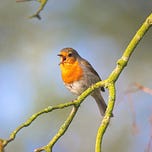




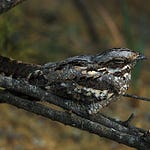
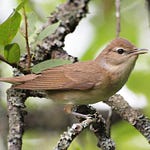

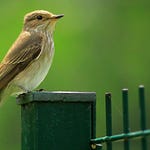


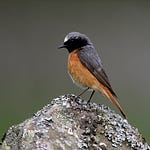
Share this post